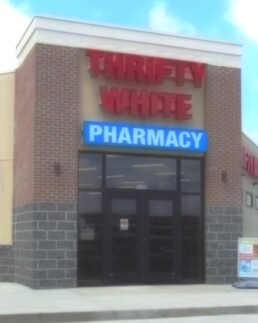Dr. John Brose on Dementia Care: It Doesn’t Have To Be This Way
Dr. John Brose, a Minneapolis psychologist and consultant to Ecumen, is nationally renowned for his pioneering efforts to make life better for the elderly and disabled. Experiences early in his career moved him to speak up for those who could not speak for themselves. Here is his compelling story.
KEYC-TV Mankato: Ecumen Awarded Grant To Expand Dementia Care Program
Media in Mankato, Hutchinson and Le Center talk about Ecumen Awakenings grant.
11 Effective Stress-Reducing Activities From Americans Who Know
11 ways Americans who experience a great deal of stress are reducing their stress levels.
Oh, That Beautiful Doll Returns to Ecumen North Branch
Eva Gale fell totally in love with the doll that her father gave her more than 80 years ago when she was only four years old. She felt such a connection that she named it “Eva Gale.”
She never stopped loving her precious doll. But time was not good to her namesake. The doll’s face was cracked, her fingers were broken and her paint was chipped. 
One day a few months ago, Eva wished out loud that her favorite doll could be restored. The staff at Ecumen North Branch, where she lives, heard her wish and rallied to make it come true. Debbie Appleby, a social worker at Ecumen North Branch, knew from previous experience that Demi’s Doll Studio in St. Louis Park could do the job.
The restoration was extremely complex and time-consuming, but after 5 months, Demi Gilbertson of Demi’s Doll Studio returned the doll to Eva. And Eva, overjoyed, sang: “Oh you beautiful doll, you great big beautiful doll.”
Like Eva, Debbie was also excited about the results. “It brought tears to my eyes,” she stated. “Her face lit up. When she was given the doll, she held it close to her and was hugging her.”
Eva proudly displays the doll at the end of her bed, and takes any opportunity she can to show off her prized possession.
Below, Demi describes in her own words how she restored the doll: 
Eva Gale (the doll) is best known as an Effanbee Mama doll. Produced by the Effanbee Doll Company of New York (also known as F&B) this doll was manufactured some 80+ years ago. She is made from what is referred to as composition; wood shavings, sawdust and glue, heat pressed into molds. Once the molds cooled, pieces (heads, hands, feet; bodies) were then glued together, sanded, painted, and sealed. Dolls like Eva Gale had cloth bodies stuffed with straw or raw cotton and her facial features were hand-painted.
Composition is a medium created to produce what doll manufacturers hoped would be an unbreakable doll. However, doll makers did not take into consideration the effects that nature would have on these dolls like humidity, heat, and a loving child’s delight at bathing their dolly. Water is said to be the worst enemy of composition. Unless extremely well taken care of and properly stored, humidity can seep into the smallest crack in the paint causing fine lines to appear, even in the joints where the doll’s arms and legs connect to their body. This is called “crazing.”
Humidity combined with other factors like heat or sunlight produces moisture and drying that lifts the paint and causes huge cracks. Gone unattended, these cracks can lift from the composition, curl, warp, and eventually break or drop off.
The first thing that had to be done to Eva Gale was to remove all the warped, flaking paint from her head, arms, and legs. She was then sanded until any rough edges from the paint were smooth. A wood filler was then used to fill those areas where the composition was exposed. After all areas were filled and smoothed, the pieces were left to cure for several days. When cured, the head, arms, and legs were sanded down and examined for spots that needed further fill. This process continued until I was pleased with the result and it looked ready to be primed for painting. Depending on the doll, the fill/cure process can take 2-5 times before I am pleased with the result.
Once ready for painting, I worked first on Eva Gale’s arms and legs. I believe she had a couple of fingers missing that needed to be re-sculpted. Once the fingers were rebuilt and sanded, the arms and legs received three layers of primer. They then received four layers of paint (sanding in between each coat). The limbs were then sealed with three layers of an acrylic sealer which protects the paint from moisture and also gives a soft glow to the item.
I then moved on to Eva Gale’s head. It was difficult matching the color of her hair because I do not airbrush. I use a dry-brush technique that I developed over the years. After numerous attempts, however, I achieved a good match and the first coat of the hair color was applied. During the same time, the doll received her first coat of flesh-tone for the face and remainder of the head. This process continued for several days with sanding in between each coat. I believe in all, Eva Gale received 9-10 coats of head/hair primer and color. The eyes, lashes, brows, mouth, and cheeks were then hand-painted with several coats. The hair and facial tones were then blended to transition the face from the molded hair. When dried, three coats of sealer were applied to the face.
Eva then needed to be reassembled. Her body, which had been completely washed and repaired, was reattached to her arms and legs. The body was stuffed the body and the head reattached. Her dress is an antique child’s dress. I replaced the gray satin ribbon with pink and accentuated with bows. Well over 100 hours was involved in the repair of Eva Gale.
Last Week's Top 5 Blog Posts- August 4
Thrifty White Pharmacy, Memory Care coming to Pelican Valley, Baby Boomers, The Case of the Disappearing Hearing Aid, and a Superior Way of Life at Ecumen Lakeshore..
In case you missed out on the latest news, here are the blog posts our online visitors found most interesting last week:
Thrifty White Pharmacy: Ecumen's Innovative Partner in Making Seniors' Lives Better
Pelican Valley Health Center Plans To Add Memory Care Services
The Case of the Disappearing Hearing Aid- By Jim Klobuchar
Duluthian Magazine Features "A Superior Way of Life" at Ecumen Lakeshore in Duluth
To read more Changing Aging blog posts or to learn more about Ecumen, please visit ecumen.org!
Ecumen Awarded Grant To Expand Its Awakenings Dementia Care Program To Assisted Living Communities
Ecumen has been awarded a $265,000 grant from the Minnesota Department of Human Services (DHS) to fund expansion of its nationally recognized Ecumen Awakenings™ dementia care program into its assisted living communities.
Thrifty White Pharmacy: Ecumen’s Innovative Partner in Making Seniors’ Lives Better
Unless you live in a rural area of the Midwest, you may not have heard much about Thrifty White Pharmacy. But the big players in the drug store industry are keenly aware of Thrifty White as one of the leading innovators in the business. Thrifty White is turning heads with its bold steps to fundamentally change the role of the pharmacy in health care.
Pelican Valley Health Center Plans To Add Memory Care Services
The Pelican Valley Health Center, managed by Ecumen, is expanding its services to include a memory care community that will offer specialized care for residents with memory impairment due to Alzheimer’s disease and other forms of dementia.
The center’s Board of Directors has authorized bids to remodel the Riverfront Manor assisted living building and convert the top floor into 10 memory care apartments. Barbara Garrity, executive director of the center, said she expects the work to be done in four to six months.
The new memory care community will offer private apartments in specially-designed surroundings to keep residents safe and secure and under skilled 24-hour supervision. Additionally, residents in memory care will have daily activities to help retain cognitive and physical abilities, as well as special attention to complications typically associated with dementia.
The ground floor of Riverfront Manor will continue to be assisted living apartments, and the top floor will become the secure memory care unit. The remodeling also will open up more ground-floor space for community activities.
In addition to assisted living, Pelican Valley Health Center also offers long-term skilled nursing care, short-term rehabilitation and respite care.
Baby Boomers and Home Sharing
Home sharing becoming more popular for boomers and seniors, particularly women.
Sewing Group at Ecumen Parmly LifePointes Threads the Needle for Charity
The talented and prolific women’s sewing group at Ecumen Parmly LifePointes Studios of Art in Chisago City, Minn., enthusiastically works together to produce handmade quilts, blankets and even dolls — all for charity.




